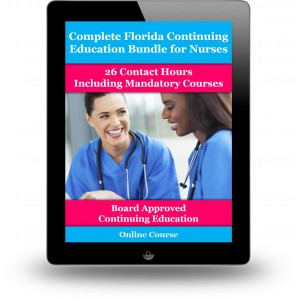- Home
- About Us
- CE Accreditation
-
CE Courses
- Nursing CE Courses
- Advanced Nursing Practice
- Critical Care Nursing
- Disaster and Terrorism Management
- Emergency Nursing
- Ethics, Legal and Advocacy
- Infection Control and Community Nursing
- Gerontology
- Leadership and Management
- Medical-Surgical Nursing
- Nursing Sciences
- Nursing Skills and Procedures
- Pediatric Nursing
- Perioperative Nursing
- Pharmacology
- Psychiatric / Mental Health
- State-Required Courses
- Teaching and Preceptorship
- CE Course Bundles
- Medical CME Courses
- Inservice Courses
- Nursing CE Courses
- CE Certification
- FAQ
- Contact Us
Details
Bioterrorism Preparedness for Healthcare Professionals is a comprehensive educational program developed to enhance the ability of clinicians to recognize, respond to, and manage bioterrorism-related events. With the increasing complexity of global threats, healthcare professionals must be equipped with the knowledge and skills necessary to identify biological agents, coordinate emergency response, and mitigate public health consequences in both clinical and community settings.
This course reviews the classification and characteristics of potential bioterrorism agents, with a focus on Category A organisms as defined by the Centers for Disease Control and Prevention (CDC), including anthrax, smallpox, botulism, plague, tularemia, and viral hemorrhagic fevers. Emphasis is placed on early recognition of signs and symptoms, appropriate isolation procedures, decontamination protocols, diagnostic strategies, and post-exposure prophylaxis. Interagency collaboration, emergency preparedness planning, and ethical considerations in mass casualty events are also addressed.
Topics covered include:
- Introduction to Bioterrorism: Overview of bioterrorism as a public health threat, history of biological warfare, and current risk assessments.
- CDC Category A, B, and C Agents: Characteristics, routes of exposure, incubation periods, morbidity, and mortality profiles of high-priority pathogens.
- Clinical Recognition and Diagnosis: Early identification of bioterrorism-related illness, use of syndromic surveillance, and reporting requirements.
- Infection Control and Isolation Protocols: Appropriate PPE usage, airborne/contact precautions, and hospital-based response coordination.
- Decontamination and Exposure Management: Initial steps following suspected exposure, triage, and management of contaminated individuals.
- Medical Countermeasures: Pharmacologic treatment and prophylaxis protocols, including vaccines, antibiotics, antivirals, and antitoxins.
- Public Health Preparedness and Response: Integration of clinical response with emergency management systems, local health departments, and federal agencies.
- Ethical and Legal Considerations: Triage ethics, informed consent, quarantine enforcement, and provider responsibilities in disaster scenarios.
- Simulation and Scenario-Based Training: Case studies involving suspected bioterrorism incidents to reinforce clinical decision-making and interprofessional collaboration.
Completion Requirements:
To receive full CE credit, participants must:
- Register for the course.
- Complete all course content.
- Score 70% or higher on the post-test.
- Submit a completed course evaluation.
Supplemental tools may include CDC bioterrorism agent reference sheets, treatment algorithms, and emergency response templates.
Important Disclosures:
- Conflict of Interest: No relevant financial relationships have been disclosed by course planners or faculty.
- Commercial Support: This course was developed without commercial sponsorship.
- Non-Endorsement: Accreditation does not imply endorsement of any commercial products or services mentioned.
- Off-Label Product Use: Off-label uses of certain medications may be discussed when supported by public health guidance and CDC recommendations.

Key Course Benefits:

- CE Credit Hours: 4 CE Credit Hours, automatically reported to CE Broker.
- Public Health Integration: Aligns clinical responsibilities with local and national emergency preparedness strategies.
- Agent-Specific Protocols: Detailed guidance for management of CDC Category A pathogens.
- Preparedness Focus: Emphasizes institutional readiness, rapid response, and protection of healthcare personnel.
Approvals and Accreditation:
National Healthcare Institute (NHI) is an approved provider of continuing education by:
- Florida Board of Nursing
- Registered Nurse, Clinical Nurse Specialist, Advanced Registered Nurse Practitioner
- District of Columbia Board of Nursing
- Registered Nurse, Nurse Anesthetist, Clinical Nurse Specialist, Midwife, Advanced Practice Nurse
- Georgia Board of Nursing
- Registered Nurse
All NHI courses adhere to the standards of the American Nurses Credentialing Center’s Commission on Accreditation, ensuring high-quality, evidence-based continuing education for healthcare professionals.









